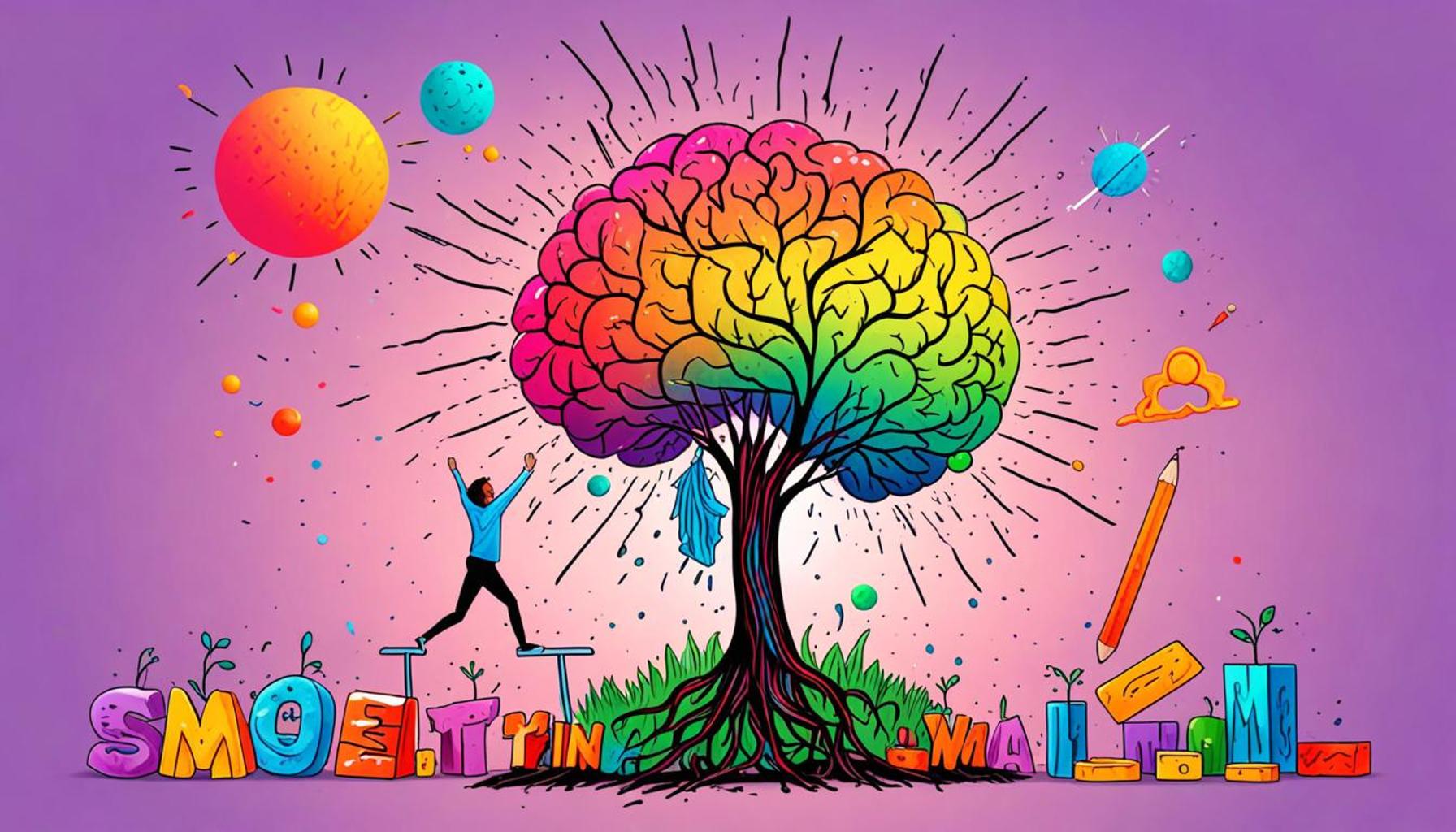Maintaining Motivation in Difficult Times: Practices to Cultivate a Growth Mindset in Times of Adversity

Understanding Adversity in Nigeria
Life in Nigeria is a complex tapestry woven with both vibrant possibilities and significant challenges. The economic environment can swing from hopeful growth to sudden recession, leaving many grappling to maintain their livelihoods. Health crises, such as the recent COVID-19 pandemic, exposed the vulnerabilities of the healthcare system, highlighting an urgent need for resilience. Furthermore, societal unrest, often stemming from political and ethnic tensions, can disrupt communities and create a climate of uncertainty. In navigating these challenges, cultivating a growth mindset emerges as a powerful tool for both individuals and communities.
What is a Growth Mindset?
At its core, a growth mindset is the belief that one’s abilities are not fixed but can be developed through effort, learning, and perseverance. This concept, popularized by psychologist Carol Dweck, emphasizes traits that empower individuals to face challenges without succumbing to defeat.
Characteristics of a Growth Mindset
Among the most significant traits associated with a growth mindset are:
- Resilience: This refers to the ability to recover quickly from setbacks. For example, entrepreneurs in Nigeria often face multiple hurdles, from securing funding to navigating regulatory challenges. A resilient entrepreneur will adapt their business strategy in the face of these difficulties rather than give up.
- Adaptive Learning: Those with a growth mindset view challenges as learning opportunities. Students facing stiff competition in Nigerian universities can adopt an adaptive approach by seeking supplementary materials or study groups, emphasizing continuous improvement over perfection.
- Positive Self-Talk: Encouraging oneself through affirmations can foster motivation. For instance, a student might combat exam anxiety by reminding themselves of past successes, reinforcing the belief that they possess the intelligence and work ethic necessary to succeed.
Practical Strategies to Foster Motivation
In challenging times, it’s easy to feel overwhelmed and stagnant. However, intentionally adopting strategies can enhance motivation and instill a proactive approach to adversity:
- Setting Achievable Goals: Breaking down larger tasks into more manageable steps can prevent overwhelming feelings. For instance, a job seeker in Nigeria can start by updating their CV before applying for positions, making their journey toward employment feel more reachable.
- Surrounding Yourself with Positivity: Engaging with supportive individuals who embrace a similar outlook can create an inspiring environment. Participation in community groups or local forums that focus on uplifting narratives can help individuals draw strength from shared experiences.
- Reflective Journaling: Documenting thoughts and feelings can provide insight and clarity. By reflecting on challenges and identifying coping strategies, individuals not only learn about their own resilience but also track progress over time.
Conclusion
Adversity is an integral part of life in Nigeria, but it does not have to define us. By embracing a growth mindset and implementing practical strategies, we can transform obstacles into opportunities for personal and communal development. As we explore these empowering practices, let us commit to uplifting ourselves and each other, fostering a community that thrives even in the face of hardship.

RECOMMENDED: Check out this similar article
Embracing Change: The Importance of Flexibility
In the face of adversity, one crucial aspect of maintaining motivation is the ability to adapt. Life in Nigeria is often unpredictable, and this unpredictability can both challenge and inspire. When circumstances change rapidly—be it due to economic downturns, health crises, or social unrest—those who embrace flexibility and are willing to pivot their strategies often find themselves in a more advantageous position.
Adopting a flexible mindset means being open to change and willing to adjust one’s approach in light of new information or circumstances. For example, during the recent economic challenges, many small business owners in Nigeria found themselves needing to rethink their business operations. Rather than viewing setbacks as insurmountable obstacles, these entrepreneurs began implementing innovative solutions, such as transitioning to e-commerce platforms to reach customers amid lockdowns.
Mindfulness and Presence
Another powerful tool for maintaining motivation during difficult times is the practice of mindfulness. Being present and fully engaged in the moment can alleviate feelings of anxiety and overwhelm that often accompany adversity. Mindfulness encourages individuals to acknowledge their feelings without judgment, facilitating a healthier response to stress. In Nigeria’s contemporary landscape, where pressure can feel relentless, carving out time for mindfulness practices—such as meditation or deep-breathing exercises—becomes essential.
- Mindful Breathing: Taking just a few minutes each day to focus on one’s breath can help center thoughts and promote emotional clarity.
- Grounding Techniques: Engaging in tactile activities, like gardening or crafting, can help individuals stay connected to the present, reducing feelings of anxiety.
- Digital Detox: Limiting social media consumption and news intake during tumultuous times can prevent information overload, allowing for a more focused and peaceful mindset.
Cultivating Relationships for Support
Motivation doesn’t thrive in isolation; the importance of community and relationships cannot be overstated. During challenging times, reaching out to friends, family, or even local support groups can create a robust safety net. This need for connection is particularly relevant in Nigeria, where communal living often plays a pivotal role in coping with adversity. Engaging in group activities, whether through volunteer initiatives or social clubs, not only fosters a sense of belonging but can also generate collective resilience.
By actively participating in community events and discussions, one can gain fresh perspectives and innovative ideas from others navigating similar struggles. These interactions serve to remind individuals that they are not alone in their difficulties, reinforcing the belief that challenges can be faced collaboratively.
In summarizing the strategies above, embracing flexibility, practicing mindfulness, and nurturing relationships are foundational elements in cultivating a growth mindset. These practices not only enhance personal motivation but also equip individuals with the tools needed to navigate the complexities of life in times of adversity.
| Strategies | Advantages |
|---|---|
| Setting Achievable Goals | Enhances focus and creates a sense of purpose, making daily challenges feel more manageable. |
| Practicing Self-Compassion | Reduces anxiety and promotes resilience by encouraging a nurturing approach towards oneself during tough times. |
ADDITIONAL INSIGHTS: Expand your understanding here
Setting Realistic Goals: The Power of Incremental Progress
In the journey of cultivating a growth mindset during challenging times, setting realistic goals is paramount. Whether dealing with personal crises, professional upheaval, or broader societal issues, breaking down objectives into smaller, manageable tasks can create a sense of achievement and build momentum. By focusing on incremental progress, individuals can navigate overwhelming situations much more effectively.
For instance, during the COVID-19 pandemic, many Nigerians faced significant disruptions in their professional lives. Instead of harboring the daunting goal of returning to pre-pandemic productivity, individuals and organizations learned to set smaller benchmarks—such as adopting a new digital tool each month or engaging in skill development workshops every quarter. This approach not only mitigated the stress associated with lofty aspirations but also allowed for adaptability as circumstances evolved.
The Impact of Positive Self-Talk
Another vital practice is the adoption of positive self-talk. The language we use internally can greatly influence our motivation levels and overall mindset. During difficult times, replacing negative thoughts with positive affirmations can reinforce resilience. For example, instead of saying, “I can’t do this,” individuals can shift their mindset to, “I can learn how to handle this.” This small linguistic shift can have profound effects on one’s emotional state and motivation to act.
Supportive phrases can serve as reminders of one’s capabilities, emphasizing the idea that challenges are opportunities for growth. Research indicates that fostering positive self-talk not only increases resilience but can also lead to improved performance, as individuals feel emboldened to tackle challenges head-on.
Learning from Failures: Viewing Setbacks as Opportunities
In the quest for a growth mindset, understanding that failures are integral to personal and professional development is essential. Viewing setbacks as opportunities for learning allows individuals to extract valuable lessons from their experiences. For instance, a local entrepreneur who faces a failed product launch may analyze customer feedback, make necessary adjustments, and ultimately succeed in a future endeavor by leveraging that knowledge.
Moreover, this perspective fosters creativity and innovation. In Nigeria, a country with a burgeoning tech scene, many startups are born from the ashes of failed projects. They demonstrate the resilience and resourcefulness characteristic of individuals who see pitfalls not as dead ends but as stepping stones to success. This shift in thinking nurtures motivation, encouraging individuals to persevere even when the road gets bumpy.
Embracing a Lifelong Learning Ethos
Finally, adopting a lifelong learning ethos can be a powerful motivator in times of adversity. In today’s fast-paced world, staying curious and open to new knowledge enables individuals to adapt quickly and effectively to changing realities. For example, numerous online learning platforms offer courses tailored to individuals seeking to enhance their skills or even transition careers during uncertain times. These resources can be especially beneficial in Nigeria, where the online education space has witnessed significant growth, providing access to diverse training opportunities.
By actively seeking new knowledge, individuals not only prepare themselves for the challenges that lie ahead but also foster a sense of purpose and direction, essential components of motivation. Embracing the mindset of a learner encourages resilience and adaptability, key traits necessary for navigating life’s unpredictable landscape.
SEE ALSO: Click here to read another article
Conclusion: Embracing Resilience Through a Growth Mindset
In the face of adversity, the journey to maintaining motivation is both a challenge and an opportunity. By implementing practical strategies such as setting achievable goals, engaging in positive self-talk, reframing failures as learning experiences, and embracing a lifelong learning ethos, individuals can effectively cultivate a growth mindset. These methodologies not only enable one to navigate difficult circumstances with grace but also empower them to thrive amidst uncertainty.
Nigerians, like many around the globe, have faced multifaceted challenges from economic shifts to personal hardships. However, the strength of our resilience can be harnessed by actively choosing to cultivate a mindset that views obstacles as catalysts for growth rather than setbacks. For instance, adopting an attitude of perseverance can transform an initial failure into a stepping stone toward greater achievements. This perspective encourages innovation and creativity, crucial traits for fostering success in a rapidly changing environment.
Moreover, the wealth of resources available through online platforms offers countless opportunities for skill enhancement and personal growth. By committing to lifelong learning, individuals not only prepare for future challenges but also infuse their lives with purpose, helping to maintain motivation even during turbulent times.
In essence, the pursuit of a growth mindset is more than a strategy—it is a commitment to resilience, adaptability, and lifelong learning. As we embrace these principles, we contribute to a culture that not only survives adversity but thrives in its wake, ultimately paving the way for a brighter future filled with potential.


